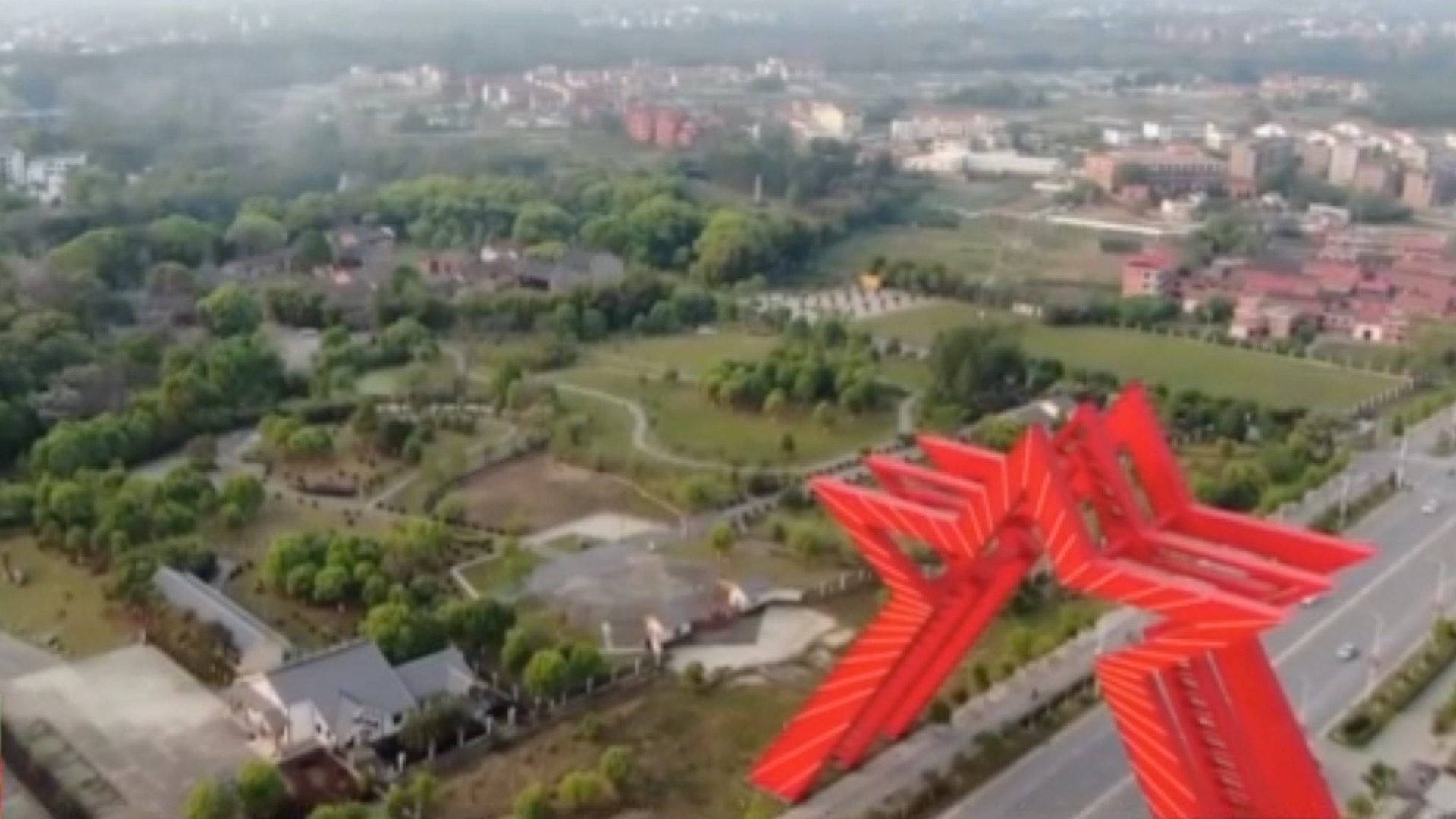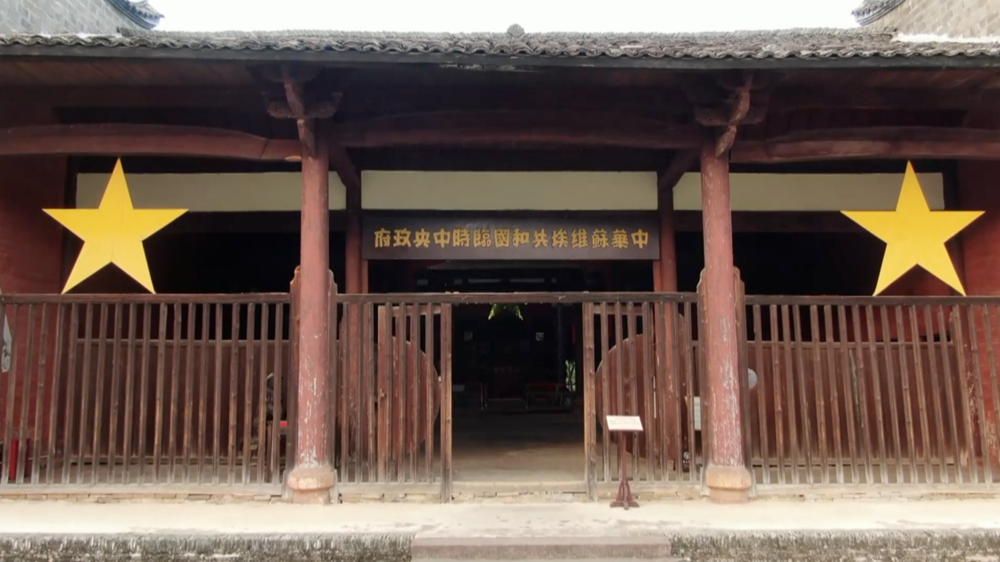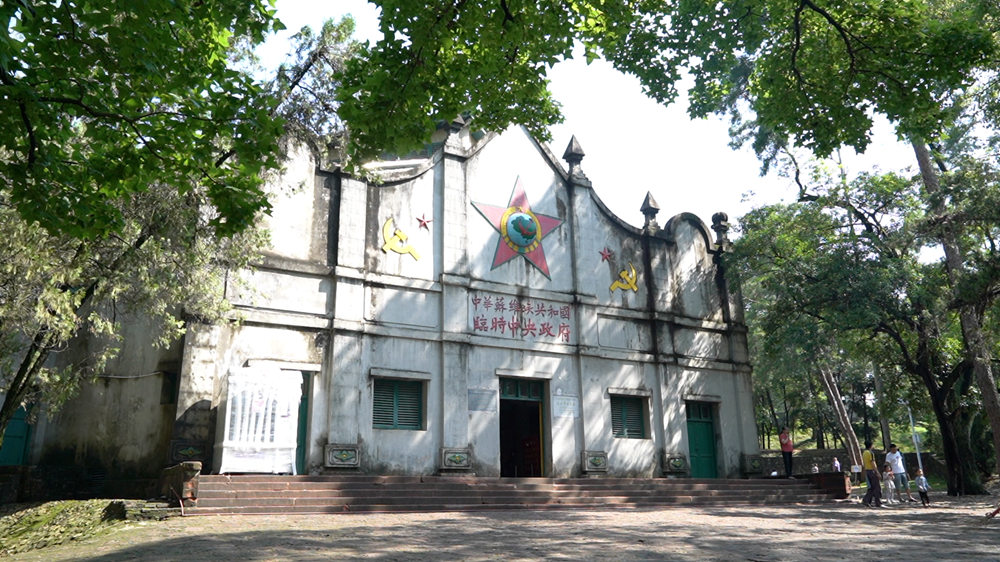01:31

Ruijin was the capital of the Soviet Republic of China, the first communist government established in the country in 1931. The central Soviet district in the mountains of east China's Jiangxi Province had a population of around 2.5 million when the government was established.
Although it lasted less than six years in the face of multiple attacks by the Kuomintang or the Nationalist Party, the Red Army's revolutionary spirit ignited new hope in the long-oppressed peasants' hearts, winning their support in standing up against years of encirclement and siege.
A hundred years ago, residents in Jiangxi relied mainly on producing grain. Landlords from big families and clans with great power and influence were often heavily armed and occupied over 80 percent of the farming land in the region.

The first National Congress of the Soviet Republic of China was held in an ancestral hall in Yeping village, Ruijin City, east China's Jiangxi Province, in 1931. /CGTN
The first National Congress of the Soviet Republic of China was held in an ancestral hall in Yeping village, Ruijin City, east China's Jiangxi Province, in 1931. /CGTN
Henceforth, ordinary farmers had to rent fields from landlords at great cost to produce grains. And at the end of the year, they often handed over 60 to 70 percent of their annual yields to the landlords.
If poor farmers couldn't make the ends meet, their wives and children could be forced into slavery to settle the debts.
The Red Army put an end to the local tyrants' bullying and extortion. The new government promised land for poor farmers and a country that represents their interests. Making the people masters of their own country wasn't just empty talk.
At the first National Congress of the Soviet Republic of China, 600 delegates elected from the people debated the future of this young country. About a quarter of them were women. From women's rights to free education, the Communist Party of China (CPC) fulfilled its promises to serve the people.

Temporary Central Government of the Soviet Republic of China in Shazhouba village, Ruijin City, east China's Jiangxi Province. /CGTN
Temporary Central Government of the Soviet Republic of China in Shazhouba village, Ruijin City, east China's Jiangxi Province. /CGTN
Shazhouba was a drought-hit region back then. A fengshui master warned the villagers that "here lies a drought dragon, if anyone disturbs him, the entire village will be cursed."
The villagers believed the charlatan and did nothing, and continued fetching muddy water from the pond.
Chairman Mao Zedong assured them, "Don't worry about the Dragon Lord. I'm the one who awakes the dragon. If there's anyone to blame, then it's me. So be it. I'm not afraid."
Then he and the soldiers helped the villagers dig a five-meter well, known as the Red Well today. The water is still running, nurturing local people, 90 years later.

